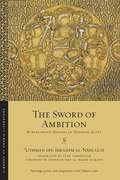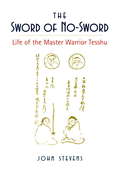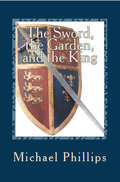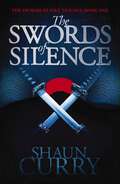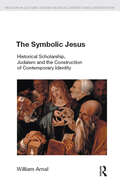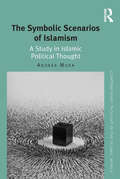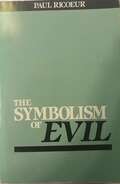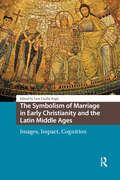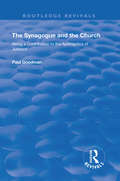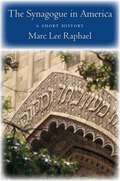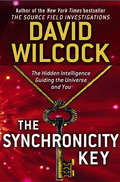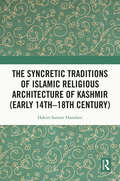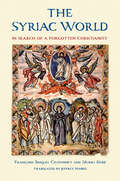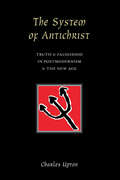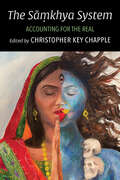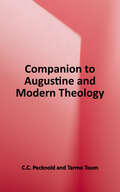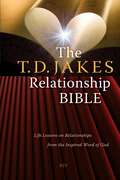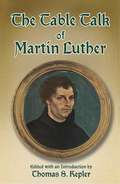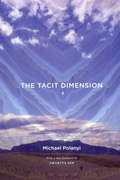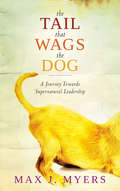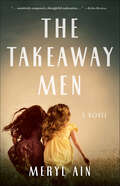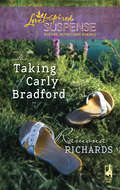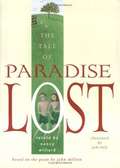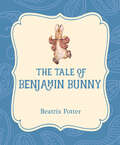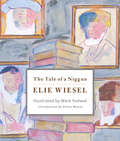- Table View
- List View
The Sword of Ambition: Bureaucratic Rivalry in Medieval Egypt (Library of Arabic Literature #52)
by ʿUthmān ibn al-NābulusīPatronage, power, and competition in the Sultan’s courtThe Sword of Ambition opens a new window onto interreligious rivalry among elites in medieval Egypt. Written by the unemployed bureaucrat 'Uthman ibn Ibrahim al-Nabulusi, it contains a wealth of little-known historical anecdotes, unusual religious opinions, obscure and witty poetry, and humorous cultural satire. Leaving no rhetorical stone unturned, al-Nabulusi pours his deep knowledge of history, law, and literature into the work—addressed to the Ayyubid sultan—as he argues against the employment of Coptic and Jewish officials. Written at a time when much of the inter-communal animosity of the era was conditioned by fierce competition for scarce resources that were increasingly controlled by an ideologically committed Sunni Muslim state, The Sword of Ambition reminds us that “religious” conflict must always be considered in its broader historical perspective.An English-only edition.
The Sword of No-Sword: Life of the Master Warrior Tesshu
by John StevensMaster swordsman, calligrapher, and Zen practitioner, Yamoaka Tesshu is a seminal figure in martial arts history. John Stevens's biography is a fascinating, detailed account of Tesshu's remarkable life. From Tesshu's superhuman feats of endurance and keen perception in life-threatening situations, to his skillful handling of military affairs during the politically volatile era of early nineteenth-century Japan, Stevens recounts the stories that have made Tesshu a legend. This is the book all martial artists must own.
The Sword, the Garden, and the King
by Michael PhillipsIn this Christian fantasy novel for children of all ages, a young boy embarks on a perilous adventure to save the creatures of a magical forest.When fourteen-year-old Matthew Robinson enters the Forest of Pellanor, he and his brother and sister have no idea what’s in store for them. All of Pellanor has been waiting for them to rescue its creatures from a danger that threatens the forest families and the life they have known. But to defeat the evil deceiver Argon, Matthew must first master his courage—and his faith.Noted devotional author Michael Phillips delivers a delightfully engaging Christian allegory in the tradition of George MacDonald and C.S. Lewis.
The Swords of Silence: Book 1: The Swords of Fire Trilogy (The Swords of Fire Trilogy #1)
by Shaun Curry'AN INTELLIGENTLY PRESENTED HISTORICAL FANTASY THAT PROVOKES THOUGHT FROM THE START' THE BRITISH FANTASY SOCIETYWhere once new ideas and beliefs were accepted, now the country's military dictator, the Shogun is shutting his country down to any outside influences.Father Joaquim Martinez who left Portugal to make Hizen Province, Japan his home, has been quietly tending to the lives of his villagers, but everything is about to be thrown into turmoil, as the Shogun has outlawed Martinez's beliefs. Those who won't recant or accept banishment, face a death sentence.With the threat of a massacre looming, and the Shogun's Samurai closing in, Father Martinez must decide, if he is willing to risk everything, to save those he has sworn to protect.
The Symbolic Jesus: Historical Scholarship, Judaism and the Construction of Contemporary Identity (Religion in Culture)
by William E. ArnalIt is widely accepted that Jesus was a Jew. However, both Christian and New Testament scholarship have a strong anti-Jewish history. 'The Symbolic Jesus' presents the controversies surrounding the Jewishness of Jesus. It examines the insistence among historical Jesus scholars that Jesus was a Jew and the ways this frames the figure of Jesus in ancient Christian literature. The book examines the anti-Jewish legacy of the past and more recent approaches to biblical scholarship. Contemporary identity issues - scholarly, political, religious and cultural - are shown to lie at the heart of the debate.
The Symbolic Scenarios of Islamism: A Study in Islamic Political Thought (Contemporary Thought in the Islamic World)
by Andrea MuraThe Symbolic Scenarios of Islamism initiates a dialogue between the discourse of three of the most discussed figures in the history of the Sunni Islamic movement—Hasan al-Banna, Sayyid Qutb, and Osama bin Laden—and contemporary debates across religion and political theory, providing a crucial foundation upon which to situate current developments in world politics. Redressing the inefficiency of the terms in which the debate on Islam and Islamism is generally conducted, the book examines the role played by tradition, modernity, and transmodernity as major "symbolic scenarios" of Islamist discourses, highlighting the internal complexity and dynamism of Islamism. By uncovering forms of knowledge that have hitherto gone unnoticed or have been marginalised by traditional and dominant approaches to politics, accounting for central political ideas in non-Western sources and in the Global South, the book provides a unique contribution towards rethinking the nature of citizenship, antagonism, space, and frontiers required today. While offering valuable reading for scholars of Islamic studies, religious studies and politics, it provides a critical perspective for academics with an interest in discourse theory, post-colonial theory, political philosophy, and comparative political thought.
The Symbolism of Evil
by Paul Ricoeur"According to Ricoeur, the most primal and spontaneous symbols of evil are defilement, sin and guilt ... Ricoeur moves from the elementary symbols of evil into the rich world of myths ... and he ends by suggesting that the clue to the relation between philosophy to mythology is to be found in the aphorism 'The symbol gives rise to the thought' ... Ricoeur's method and argument are too intricate and rich to assess in so short a review. Suffice it to say that this is the most massive accomplisment of any philosopher within the ambience of Christian faith since the appearance of Gabriel Marcel" – Sam Keen, The Christian Century
The Symbolism of Marriage in Early Christianity and the Latin Middle Ages: Images, Impact, Cognition (Knowledge Communities)
by Line Cecilie EnghIn the Middle Ages everyone, it seems, entered into some form of marriage. Nuns - and even some monks - married the bridegroom Christ. Bishops married their sees. The popes, as vicars of Christ, married the universal Church. And lay people, high and low, married each other. What united these marriages was their common reference to the union of Christ and Church. Christ's marriage to the Church was the paradigmatic symbol in which all the other forms of union participated, in superior or inferior ways. This book grapples with questions of the impact of marriage symbolism on both ideas and practice in the early Christian and medieval period. In what ways did marriage symbolism - with its embedded concepts of gender, reproduction, household, and hierarchy - shape people's thought about other things, such as celibacy, ecclesial and political relations, and devotional relations? How did symbolic cognition shape marriage itself? And how, if at all, were these two directions of thinking symbolically about marriage related?|multidiciplinary approach, high-precision conceptual analyses, a case study of symbolical cognition
The Synagogue and the Church: BEING A CONTRIBUTION TO THE APOLOGETICS OF JUDAISM (Routledge Revivals)
by Paul GoodmanPublished in 1908, this book details the development and establishment of Judaism and Jewish culture in contrast to the spread and presence of the Christian church and community. Focusing on the spiritual importance of Jewish scripture and its prominence in other Abrahamic religions, Goodman presents a discussion on spiritual and ethical perspectives in Judaism in comparison to Christianity.
The Synagogue in America: A Short History
by Marc Lee Raphael&“An insightful, scholarly, and comprehensive overview of the evolution and changing role of the American synagogue" (Choice). In 1789, when George Washington was elected the first president of the United States, laymen from all six of the new nation&’s Jewish congregations sent him congratulatory letters. He replied to all six—thus recognizing these religious institutions as part of the new nation. By this time, the synagogue had become the focal point of American Jewish life, a dominance that was not challenged until the twentieth century, when institutions such as Jewish community centers or Jewish philanthropic organizations claimed to be the hearts of their Jewish communities. Concise yet comprehensive, The Synagogue in America is the first history of this all-important institution, illuminating its changing role within the American Jewish community over the course of three centuries. From Atlanta and Des Moines to Los Angeles and New Orleans, Marc Lee Raphael examines Orthodox, Reform, Conservative, and Reconstructionist synagogues. He traces the emergence of the American synagogue from the colonial period to its modern proliferation and diversification. Encompassing architecture, forms of worship, rabbinic life, fundraising, creative liturgies, and feminism, The Synagogue in America is the go-to history for understanding the synagogue&’s significance in American Jewish life.
The Synchronicity Key: The Hidden Intelligence Guiding the Universe and You
by David WilcockIn The Hidden Science of Lost Civilisations David Wilcock exposed some of the greatest scientific secrets of our time to unlock the mysteries man-kind have always struggled to answer: who are we, how did we get here and where are we going? In The Synchronicity Key David Wilcock goes beyond this new understanding to investigate how our universe works. Using history and astrology, as well as new scientific research, Wilcock demonstrates there is a hidden architecture within time which guides individuals and nations through a system of enlightenment.
The Syncretic Traditions of Islamic Religious Architecture of Kashmir (Early 14th –18th Century)
by Hakim Sameer HamdaniThis book traces the historical identity of Kashmir within the context of Islamic religious architecture between early fourteenth and mid-eighteenth century. It presents a framework of syncretism within which the understanding of this architectural tradition acquires new dimensions and possibilities in the region. In a first, the volume provides a detailed overview of the origin and development of Islamic sacred architecture while contextualizing it within the history of Islam in Kashmir. Covering the entirety of Muslim rule in the region, the book throws light on Islamic religious architecture introduced with the establishment of the Muslim Sultanate in the early fourteenth century, and focuses on both monumental and vernacular architecture. It examines the establishment of new styles in architecture, including ideas, materials and crafts introduced by non-Kashmiri missionaries in the late-fourteenth to fifteenth century. Further, it discusses how the Mughals viewed Kashmir and embellished the land with their architectural undertakings, coupled with encounters between Kashmir’s native culture, with its identity and influences introduced by Sufis arriving from the medieval Persianate world. The book also highlights the transition of the traditional architecture to a pan-Islamic image in the post-Independence period. With its rich illustrations, photographs and drawings, this book will interest students, researchers, and professionals in architecture studies, cultural and heritage studies, visual and art history, religion, Islamic studies and South Asian studies. It will also be useful to professional architecture institutes, public libraries, museums, cultural and heritage bodies as well as the general reader interested in the architectural and cultural history of South Asia.
The Syriac World: In Search of a Forgotten Christianity
by Francoise Briquel Chatonnet Muriel DebieA comprehensive survey of Syriac Christianity over three thousand years Syriac is often referred to as the third main language of Christianity, along with Latin and Greek, and it remains a foundational classical, literary, and religious language throughout the world. Originating in Mesopotamia along the Roman and Parthian frontiers, it was never the language of a powerful state or ethnic group, but with the coming of Christianity it developed into a rich religious and cultural tradition. At the same time that Christianity was making its way through Europe, Syriac missionaries were founding churches from the Mediterranean coast to Persia, converting the Turkic tribes of Central Asia, and building communities in India and China. This comprehensive work tells the underexplored story of the Syriac world over three thousand years, from its pre-Christian roots in the Aramaic tribes and the ancient Near East to its vibrant expressions in modern diaspora churches. Enhanced with images, songs, poems, and important primary texts, this book shows the importance of Syriac history, theology, and literature in the twenty-first century.
The System Of Antichrist: Truth and Falsehood in Postmodernism and the New Age
by Charles UptonThe System of Antichrist examines the present religious and cultural scene from the standpoint of traditional metaphysics and critiques the New Age spiritualities within their postmodern context. Its many references to Rene Guenon and Frithjof Schuon also help introduce these important but little-known 'traditionalist' thinkers. The book presents lore relating to the 'latter days' of the present cycle from the vantage point of comparative religion, drawing upon relevant doctrines from Buddhism, Hinduism, Judaism, Christianity, Islam, Zoroastrianism, and the Native American traditions. It also speculates upon the social, psychic, and spiritual nature of that being known to Christianity, Judaism, and Islam as the Antichrist, presenting him as both an individual and a system and warning those willing to be warned against the spiritual seduction and terror he represents, and against the regime which will be--and is--the social expression of that seduction and that terror. Finally, in tracing the roots of Antichrist in the fallen nature of man, the author sketches the particular quality of spirituality proper to apocalyptic times, the dangers it faces, the unique opportunities open to it. And along the way he describes his own course from the 'spiritual revolution' of the 1960s, through the world of New Age spiritualities, to the threshold of traditional esoterism and metaphysics. As he says, speaking of the angst that characterizes the modern world: The specific medicine for the shock of despair is the deeper shock of meaning. Nothing but the weight of eternity, breaking through the thin, brittle shell of the postmodern sky, can set us on our feet.
The Sāṃkhya System: Accounting for the Real (SUNY series in Hindu Studies)
by Christopher Key ChappleThe Sāṃkhya System brings new life to an ancient Hindu system of thought. Sāṃkhya spans the fields of philosophy, physics, metaphysics, psychology, and ethics. Although notably not theological, its key premises can be found in virtually all religious traditions that originate from India. Sāṃkhya espouses a reciprocity between Prakṛti, the realm of activity, and Puruṣa, the silent witness. It also delineates the phenomenal experiences that arise from Prakṛti, including the operations of the human body, the five great elements, and the eight mental states. Sāṃkhya proclaims that knowledge of world and self can lead to freedom.This book presents a new translation of Īśvarakṛṣṇa's Sāṃkhya Kārikā, with grammatical analysis. It includes interpretive essays that explore the philosophical aspects of the Sāṃkhya system by Geoffrey Ashton, Ana Funes Maderey, Mikel Burley, Christopher Key Chapple, and Srivatsa Ramaswami, as well as its sociological and psychological applications as delineated by Marzenna Jakubczak, McKim Marriott, and Alfred Collins.
The T&T Clark Companion to Augustine and Modern Theology (Bloomsbury Companions Ser.)
by Tarmo Toom C. C. PecknoldThis book is both a theological companion to the study of Augustine, and a resource for thinking about Augustine's importance in modern theology. Each of the essays brings Augustinian depth to a broad range of contemporary theological concerns. <p><p>The volume unveils cutting-edge Augustinian scholarship for a new generation and at the same time enables readers to see the timely significance of Augustine for today. Each of the essays not only introduces readers to key themes in the Augustinian corpus but also provides readers with fresh interpretations that are fully conversant with the theological problems facing the church in our world today. <p><p>Designed as both a guide for students and a reference point for scholars, it will seek both to outline the frameworks of key Augustinian debates while at all times pushing forward fresh interpretative strategies concerning his thought.
The T.D. Jakes Relationship Bible: Life Lessons on Relationships from the Inspired Word of God
by T. D. JakesYou are invited to begin a lifelong journey to discovering God's words of truth for your life and relationships, and to discovering God Himself in the words of His Book! From Genesis to Revelation, it is clear that the Holy Bible is, in the words of Bishop T.D. Jakes, "The Greatest Love Story Ever Told." It is not a book about religion, but relationships--from the creation of a man and a woman and their intimate relationship with God in the Garden through the tragic break in that relationship at the Fall and the eventual restoration of that relationship through Jesus Christ and His death on the cross of Calvary. Our relationship with God is the foundation for our lives. If we try to build on any other relationships or things, we are building on quicksand, because at some point all of our relationships will break down. It is from our earthly relationship with God that He gives us the privilege of having healthy relationships with our spouse, our families, our friends, and countless others. *** Inside the pages of God's Word you will discover the divine instruction on life relationships that has been given to generations of people who faced the same issues and questions that you face today, addressing those questions honestly and openly and offering wise counsel for your relationships, inspiration for your needs, comfort for your sorrows, guidance for your confusion, and hope for your discouragement. In The Relationship Bible, you will find the following features from Bishop Jakes: * A 32-page Introduction that sets forth "The Greatest Love Story Ever Told" along with helps to understanding the Bible and guides to answering life's relationship problems. * Reflections of God's Heart--Over 20 pages of articles that continue to develop God's love relationship with mankind. * Lessons of the Heart--Over 80 pages of life lesson articles that address a wide range of relationship issues. * Heartbeats--25 articles that demonstrate how to build relationships. * Heartbreakers--25 articles that demonstrate how relationships are damaged. * Heart Murmurs--10 powerful prayers for your personal relationships. * Words of Jesus in Red * Concordance * One-Year Bible Reading Plan
The Table Talk of Martin Luther
by Martin Luther Thomas S. Kepler"The Bible is alive," declared Martin Luther, "it speaks to me; it has feet, it runs after me; it has hands, it lays hold of me." The Protestant Reformation's most prominent leader possessed a gift for evocative speech, and he was as articulate and outspoken in private as he was in public. Fortunately for posterity, some of Luther's loyal followers took note of his informal speeches.The Table Talk of Martin Luther consists of excerpts from the great reformer's conversations with his students and colleagues, in which he comments on life, the church, and the Bible. Collected by Antony Lauterbach and John Aurifaber, Luther's close associates, these absorbing anecdotes reveal the speaker's personality and wisdom. An informative introduction by editor Thomas S. Kepler describes the circumstances under which this book came into existence and the remarkable story of its initial translation into English. This text is based on the acclaimed English translation by the literary critic and essayist William Hazlitt.
The Tacit Dimension
by Michael Polanyi"I shall reconsider human knowledge by starting from the fact that we can know more than we can tell," writes Michael Polanyi, whose work paved the way for the likes of Thomas Kuhn and Karl Popper. The Tacit Dimension argues that tacit knowledge-- tradition, inherited practices, implied values, and prejudgments-- is a crucial part of scientific knowledge. Back in print for a new generation of students and scholars, this volume challenges the assumption that skepticism, rather than established belief, lies at the heart of scientific discovery. "Polanyi's work deserves serious attention... [This is a] compact presentation of some of the essentials of his thought. "--Review of Metaphysics "Polanyi's work is still relevant today and a closer examination of this theory that all knowledge has personal and tacit elements... can be used to support and refute a variety of widely held approaches to knowledge management. "--Electronic Journal of Knowledge "The reissuing of this remarkable book give us a new opportunity to see how far-reaching-- and foundational-- Michael Polanyi's ideas are, on some of the age-old questions in philosophy. "--Amartya Sen, from the new Foreword
The Tail That Wags The Dog: A Journey Towards Supernatural Leadership
by Max J MyersIf you have been leading God’s people for any length of time, you know how difficult--sometimes even impossible--it can be. Why is Christian leadership so hard to get right? Could it be that the church, which was meant to reflect the heart of God, has instead taken the role of leader? Could we simply be making things harder than they need to be? In The Tail That Wags the Dog, veteran pastor Max Myers takes those questions straight to the Bible to demonstrate where and why traditional leadership models fall short. In the process he discovers another way to do ministry God’s way.
The Takeaway Men: A Novel
by Meryl AinWith the cloud of the Holocaust still looming over them, twin sisters Bronka and Johanna Lubinski and their parents arrive in the US from a Displaced Persons Camp. In the years after World War II, they experience the difficulties of adjusting to American culture as well as the burgeoning fear of the Cold War. Years later, the discovery of a former Nazi hiding in their community brings the Holocaust out of the shadows. As the girls get older, they start to wonder about their parents’ pasts, and they begin to demand answers. But it soon becomes clear that those memories will be more difficult and painful to uncover than they could have anticipated. Poignant and haunting, The Takeaway Men explores the impact of immigration, identity, prejudice, secrets, and lies on parents and children in mid-twentieth-century America.
The Taking of Carly Bradford
by Ramona RichardsSeven-year-old Carly Bradford is last seen wearing a blue sundress and white sandals. That was three months ago. When Dee Kelley finds the sandals, she's determined to help police chief Tyler Madison find Carly. But he's just as determined to keep Dee away. Original.
The Tale Of Paradise Lost: Based On The Poem By John Milton
by John Milton Nancy Willard Jude DalyLong, long ago, before the world was, before minutes ticked and seconds tocked, before beginnings had endings, there was a war in Heaven. In 1656 a great poet begins a new work. Because, at this stage of his life, he is completely blind, he dictates the verses to his daughter, Deborah. It is a monumental work, a magnificent epic of good and evil, a richly inventive narrative that is audacious in its scope and splendor. It is the masterpiece we know as "Paradise Lost." Now another poet, Newbery Award winner Nancy Willard, retells Milton's astonishing poem in a prose adaptation that faithfully captures his vivid imagery and cinematic flourish. Thrilling, gorgeous, suspenseful, and yes, even funny -- here is the tale of Lucifer's rebellion, the war between Heaven and Hell, the creation of the world, and the temptation and fall of Adam and Eve. Here is the tale of "Paradise Lost" in a beautifully illustrated edition that will introduce the glory of Milton's achievement to a new generation of readers.
The Tale of Benjamin Bunny (Xist Illustrated Children's Classics)
by Beatrix PotterBeatrix Potter's Classic Children's Stories in beautiful eBook editions The Story of Miss Moppet is a classic story about teasing featuring a little mouse and a kitten. The Story of Miss Moppet by Beatrix Potter is part of the Xist Publishing Children's Classics collection. Each eBook has been specially formatted with full-screen, full-color illustrations and the original, charming text.
The Tale of a Niggun
by Elie WieselElie Wiesel&’s heartbreaking narrative poem about history, immortality, and the power of song, accompanied by magnificent full-color illustrations by award-winning artist Mark Podwal. Based on an actual event that occurred during World War II. It is the evening before the holiday of Purim, and the Nazis have given the ghetto&’s leaders twenty-four hours to turn over ten Jews to be hanged to &“avenge&” the deaths of the ten sons of Haman, the villain of the Purim story, which celebrates the triumph of the Jews of Persia over potential genocide some 2,400 years ago. If the leaders refuse, the entire ghetto will be liquidated. Terrified, they go to the ghetto&’s rabbi for advice; he tells them to return the next morning. Over the course of the night the rabbi calls up the spirits of legendary rabbis from centuries past for advice on what to do, but no one can give him a satisfactory answer. The eighteenth-century mystic and founder of Hasidism, the Baal Shem Tov, tries to intercede with God by singing a niggun—a wordless, joyful melody with the power to break the chains of evil. The next evening, when no volunteers step forward, the ghetto&’s residents are informed that in an hour they will all be killed. As the minutes tick by, the ghetto&’s rabbi teaches his assembled community the song that the Baal Shem Tov had sung the night before. And then the voices of these men, women, and children soar to the heavens. How can the heavens not hear?
